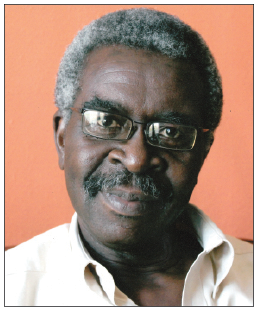Robert Southgate, Head of Corporate Governance, Compliance & Contentious Legal for the Asia, Middle East & Africa region for British Telecommunications (BT), reveals to the In-House Community his methods of motivation, what makes external counsel stand out to him and why ‘phoning it in’ is never the answer.
ASIAN-MENA COUNSEL: How do you add value to your company?
Robert Southgate: The main way I add value is by ensuring I am a trusted partner who is integrated into the business – not just someone who provides a service or gives advice in a vacuum. This is achieved by being a skilled lawyer, by understanding the business’ goals and then providing practical legal solutions to help the business achieve those goals and/or understand the necessary legal risks to enable them to make the right commercial decisions.
In addition, my role also entails acting as the legal conscience/ethical champion of the business. At senior levels this role is seen as a critical part of helping the business understand and meet its compliance requirements.
AMC: How much industry and market knowledge is necessary to be successful in your role?
RS: First and foremost to be a success in my role, and I would say in any in-house role, you need to know your company. This sounds obvious, but it is a significant part of how I add value – by understanding what is important to the business, why it is important and being able to utilise that in-depth knowledge to ensure that my solutions and advice are tailored to the needs of the business.
For example: in the employment law area, it is crucial to understand in each country the types of employees the business has, the specific work they undertake and how they contribute to the business goals. This ensures that when advising on employee issues, whether this be performance, discipline or drafting new policies, the advice uses that knowledge to ensure the right questions are asked to achieve the best solution for the business.
 |
AMC: Please describe how the in-house role has changed as the market has developed.
RS: I would say there have been three main changes to the in-house role within my company:
- More for less: Since the global financial crisis, like with all companies, the focus is on efficiency and cost. In-house legal teams have not been excluded from this challenge. Increasingly we are asked to consider our resources, how efficiently we are working and innovative solutions to meet the more for less challenge. In our company, we are utilising legal process outsourcing (LPO) more to strip out low-level legal work to a more cost-effective solution. The role also now requires a heavier focus on managing the legal spend budget, ensuring we do as much as we can in-house and manage the costs of our external counsel in a smart way.
- Partner not advisor: Previously the role was very much one that the business turned to in order to get specific advice on a particular issue. Whilst at one level this is still very much the same, the change now is from being just an advisor to being a partner for the business, to work with them on the business goals to ensure they are achieved within the right legal framework and risk.
- Compliance: Finally, again flowing from the global financial crisis, the in-house role has seen a huge increase in the attention and focus on compliance. In our company, globally, we have brought the legal, governance and compliance departments together. In line with this, my role changed within the past 18 months to managing the corporate governance and compliance function in addition to the litigation and employment function. The compliance function has increased in size and more emphasis and focus is now given to this area.
AMC: When seeking external help, what makes some firms/lawyers stand out?
RS: Having used a number of law firms across the region, the main principle I apply these days is to use lawyers not law firms. I very much see the external lawyers as an extension of my own team, and as such it is important to build a relationship to ensure the ways of working are aligned. For example, in Japan we have followed our external employment lawyer to three different firms as she has progressed in her career and developed that relationship. In this respect, the elements that make lawyers stand out for me are keenness to understand how I work and therefore what I want from them; the ability to provide concise/straightforward and practical legal advice — not just sitting on the fence in a grey area; and the willingness to learn more about the company and understand its goals.
AMC: You have a large team of lawyers that reports to you. Can you give any advice on how to motivate a team?
RS: I have six direct reporters and a wider team of 12; a mixture of lawyers and governance and compliance practitioners. We are all skilled in our particular areas and as a manager, it is important to recognise this. My job is simply to challenge them to ensure their solutions are practical and goal orientated. To motivate the team it is important to provide a clear purpose linked to the business goal — so they can understand why they are here; to foster collaboration — we are one team and we can learn from each other; to empower them — by doing so the responsibility will motivate them to succeed; and, finally, communicate by making yourself available to them and providing them with support to give them confidence in their work.
AMC: In a fast-moving industry such as telecommunications, does law move quicker than it would in an alternative one?
RS: In some areas, yes, but in other areas the challenge is actually that the law can’t keep up with the development in IT and technology. Cloud computing and technologies are prime examples where privacy laws have not caught up! However, overall in the Asian region, the main challenge is that the local laws in a number of the emerging countries are developing in order for that country to catch up with the more mature jurisdictions. We have seen a number of data privacy laws come out recently and we are seeing new employment legislation in almost all countries as they strengthen employee rights. That said, I think most industries are facing similar challenges, one way or another.
AMC: What would you say are the most important attributes for someone in your position to possess?
RS: This is a difficult one — I think the top three are:
- Effective communicator: Communication is key in all roles but in my role, you need to be effective in communicating at a variety of different levels. From those that report to you to those that you report to; the senior management team to individual employees within the business. The importance here is to be able to tailor your communication style to suit the needs of your audience, and to do so in a way that influences and persuades.
- Organisation/time management: In my role, I have three fairly distinct areas to manage — corporate governance, compliance and litigation/employment. As such, it is crucial that I remain organised to enable me to ensure I have a good oversight of the key issues in those areas and manage my time effectively so that sufficient time is given to the areas according to the priorities at that time.
- Leader: I strongly believe every in-house lawyer needs to be a leader in their particular area. In my role this is even more important to ensure I can bring my team with me and represent them properly with the senior management team.
AMC: What’s the best advice you’ve ever received and what’s the best advice you could give?
RS: I think the best advice I have received was from my previous line manager from the UK. He would always tell me that I needed to be at least three steps ahead and be planning for things in advance — in order to influence the business proactively rather than reactively. In Asia, with a faster pace, this is important to ensure that as an in-house lawyer you are able to best protect the business’ interests.
What advice can I give? I think in these situations it is always best to call upon the wisdom of others! The one that springs to mind straightaway is from Steve Jobs: “The only way to do great work is to love what you do. If you haven’t found it yet, keep looking. Don’t settle.”
I think this is crucial as we spend a significant amount of time at work and whilst we all have personal lives that keep us motivated, I think you need to have passion in what you do in your job to succeed.
 |




















